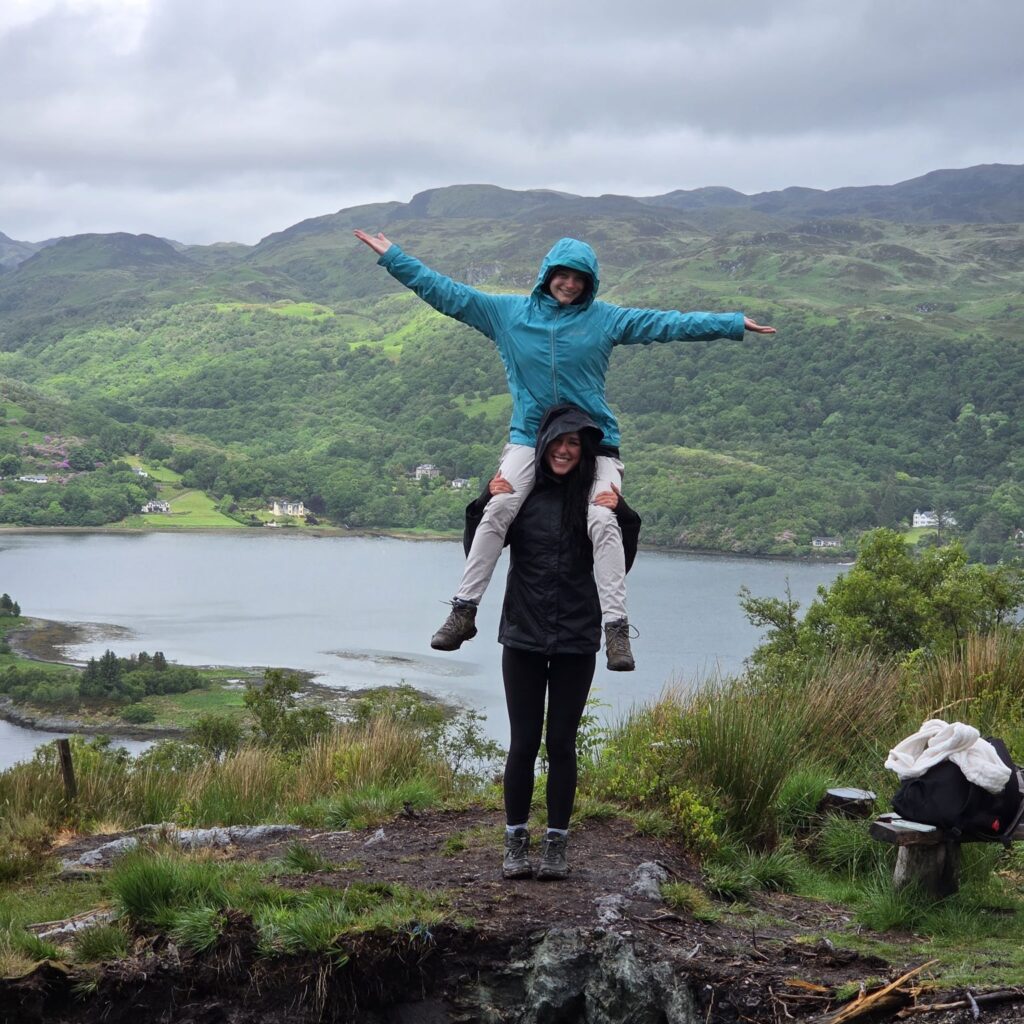Main Content
The summer provides an opportunity for Rutgers students to spread their wings and explore new places away from campus. Two Department of Human Ecology Professors traveled with students abroad this summer. Dr. Jack Harris ran his first summer course titled “Castles, Communities and Sustainability” while Dr. Victoria Ramenzoni participated in Climate Corps Summer School 2025 program hosted by Korea University (KU) with students.

Dr. Harris’s class “Castles, Communities, and Sustainability,” embedded students in Scotland’s unique approach to sustainability—one that empowers communities to grow economies and protect natural resources in locally driven ways. Students discovered very different ways sustainability is practiced from urban Edinburgh to the beautiful Highlands and islands, and at farms, heritage sites, and community-owned woodlands. Several EPIB students and Sustainability minors participated in the travel abroad.
Meanwhile – five thousand miles away – Dr. Victoria Ramenzoni and two EPIB students (Alex Varela (2023) and Audree Gousse (2026) participated in the Climate Corps Summer School 2025 program hosted by Korea University (KU) this summer, bringing together students and scholars from around the world to address the global climate crisis through innovation, education, and partnership.

The Climate Corps Summer School ran from July 6-13 and brought together 130 participants from 35 universities across six continents for the first global climate education program at KU, in partnership with UNDP Seoul Policy Centre. Over six days, the participants presented and discussed research on food security and climate policy, collaborated across borders to solve global climate challenges, went on field visits to key sustainability sites and initiatives in Seoul, and experienced KU’s zero-waste campus efforts firsthand. Students had the opportunity to team up with colleagues from around the world to develop new research proposals, entrepreneurial project plans, and policy suggestions, while being mentored by participating faculty members. Faculty members were able to participate in thematic research discussions and explore new collaborative project ideas.